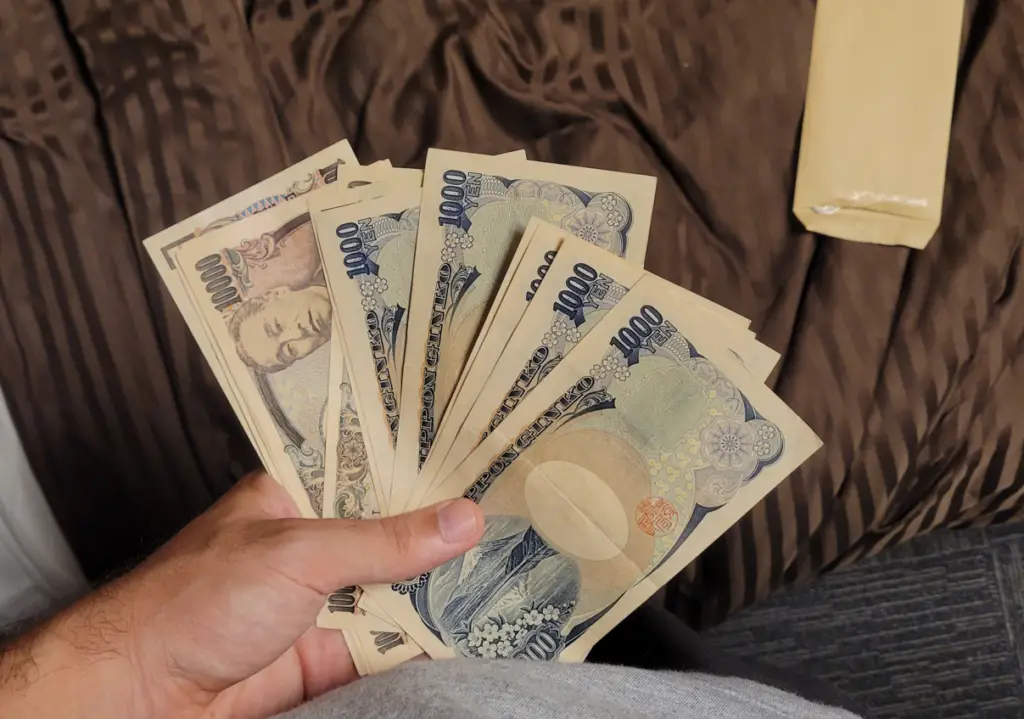In this article, I’ll be discussing my experiences as a foreigner working in various jobs in Japan and whether racial exploitation exists.
My Experience as a Hotel Cleaner in Kyoto

I initially arrived in Japan on a Working Holiday Visa which allowed me to stay in the country for 1.5 years with no strings attached.
Regardless, I needed a part-time job to support myself and I managed to get hired by a hotel cleaning company.
This company seemed to only hire foreigners as the work itself did not require Japanese-speaking abilities (which suited me well).
I was promised an hourly rate of about 1,200 yen per hour (8 USD) with variable working hours based on the needs of the hotel.
However, this rate was only guaranteed for the first month of work, and I was told if I could not average a speed of 3 rooms per hour, I would be paid 400 yen per room instead.
The work itself wasn’t so bad. I mostly did basic hotel cleaning and room prep tasks such as changing bedsheets, vacuuming floors, and cleaning bathrooms.
That being said, it became blatantly obvious to me that averaging 3 rooms per hour was simply not possible, and I began to suspect this was all a setup.
In fact, the state of some rooms would be so bad that it would take an entire hour just to clean that one room. At 400 yen per room, does that mean that’s all I get for the hour?

Blatant Exploitation…

There were clear issues with this payment model, and when I brought it up with the boss, I was simply told something along the lines of “We are all in the same boat” and “We don’t make a profit if you can’t do 3 rooms per hour.” This was all very disheartening to hear, but sadly, things only got worse from there.
When the end of the month finally arrived, I was eagerly looking forward to my first pay. To my great devastation, I was told I wouldn’t be paid until the end of the following month! At this point, it was very clear how this whole payment structure worked. Hire a bunch of desperate foreigners who can’t speak Japanese, pay them less than minimum wage, and withhold a month of their pay.
In fact, even when I eventually quit this job of slavery, I had to stay in touch with the boss for an additional month in order to receive my final pay. Of course, the fact that they could pay you in cash was a big appeal to many foreigners without a Japanese bank account (which was me at the time).
In any case, as far as my experience working as a hotel cleaner in Kyoto goes, I was exploited. Working 3–4 days per week, I was lucky to make 50,000 yen (330 USD) per month. That’s barely enough to cover food expenses let alone accommodation costs. Fortunately, this
Big Improvements at SOWAKA

Fortunately, it’s not all doom and gloom for foreign workers in Japan (yes, even for non-Japanese speakers).
My search for a new job was a challenging one, and I went to many awkward interviews facilitated by Google Translate.
Rejection after rejection, I was eventually hired as a hotel front desk staff at SOWAKA, a beautiful tranquil hotel in Gion, Kyoto.
Unlike my previous experience, this hotel treated its staff with dignity and respect. They also had a more multicultural range of workers, so I knew it wasn’t being avoided by Japanese people!

Given Japan’s minimum wage range of about 1,000–1,100 yen per hour, I was pleasantly surprised to receive 1,500 yen (10 USD) per hour for my night shift duties. Not only that, but transport costs were reimbursed and we also received a 500 yen lunch bonus per shift.
All-in-all, I was making around triple the money I made as a hotel cleaner, and for perhaps less effort too. The work conditions at SOWAKA are absolutely blissful and all the coworkers and management are kind and supportive. I’m not trying to sound like a “come work at SOWAKA” ad, but the sheer contrast from my last job very much puts me in such a mood.
While a 1,500 yen or 10 USD per hour job would be quite low by Western standards, when you take into account the lower cost of living in Japan compared to the West, this rate works out to be above average. Flexibility, solid pay, and employee benefits are the pillars of a great work life.
Now, putting these two very different job experiences against each other, it would be unfair to say that Japan as a whole exploits foreign workers. Currently, I feel very equal to my Japanese coworkers as far as treatment and opportunity go. However, one cannot ignore the existence of foreign exploitation as evident with the cleaning company. Personally, I would call that experience blatant exploitation, though some would argue this is simply the nature of cleaning jobs.
To conclude, most Japanese companies strive toward equality for all employees. As long as you find yourself a respectable job with a proper hourly rate (heck, even McDonald’s will do), you can enjoy a pretty stable and secure life in Japan.
To find out more about the best jobs for foreigners in Japan, check out this article –> Top 3 Types of Work for Foreigners in Japan.
Of course, if you are planning to visit Japan, you’ll need a way to get around the country as efficiently and affordably as possible. Japan Rail provides an abundance of travel passes to suit your travel needs. So whether you are traveling individually or as a group, the JR Pass is every traveler’s go-to for getting around and making the most of your time in Japan!
